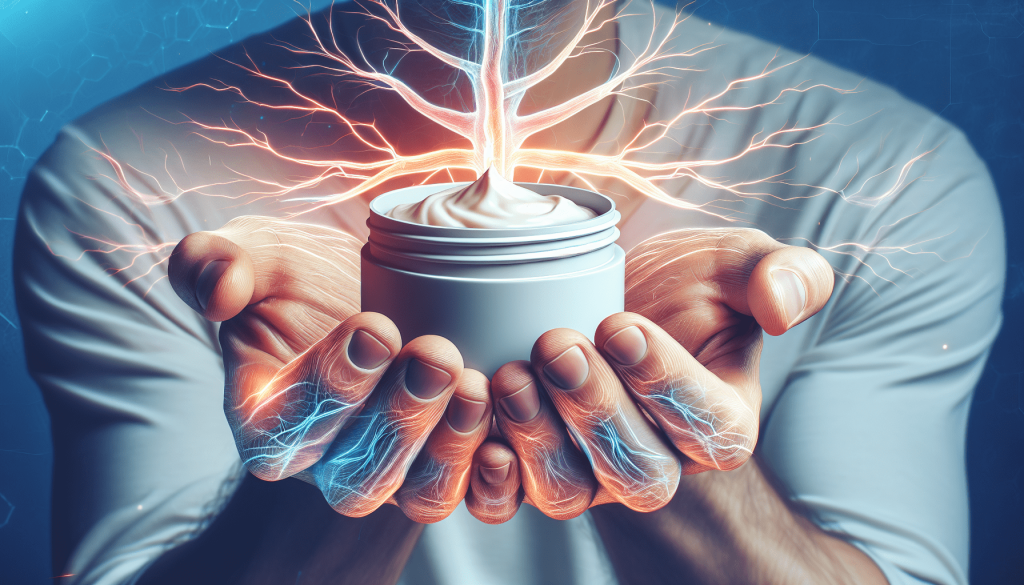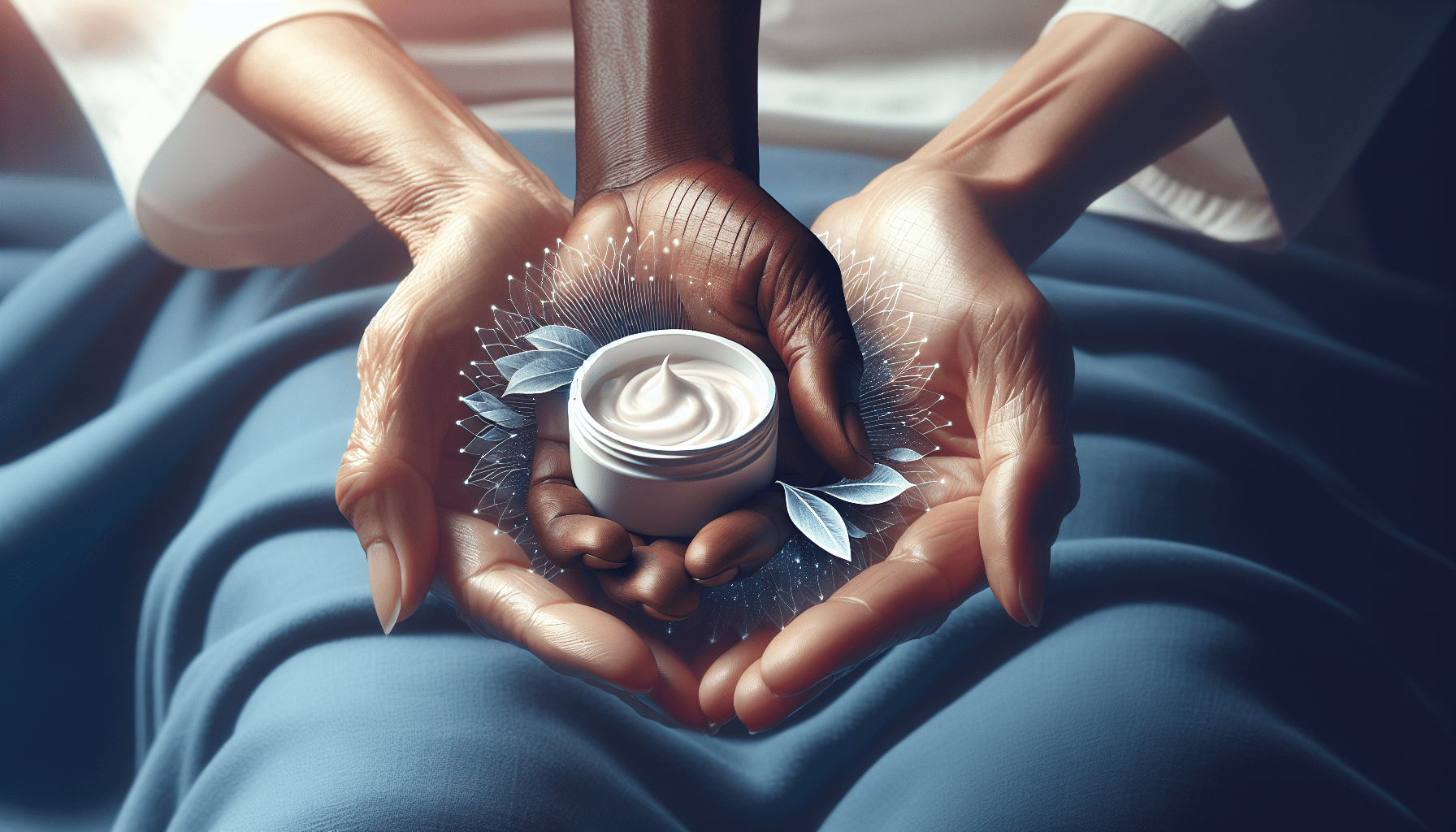How Do You Make Neuropathy Pain Go Away?
Neuropathy pain can be a debilitating condition that affects your daily life, making even the simplest tasks a challenge. But fear not, because there are methods to alleviate this pain and regain control of your life. From physical therapy and medication options to alternative treatments like acupuncture and herbal remedies, various avenues await to assist you in conquering neuropathy pain. In this article, we will explore these strategies and provide you with valuable insights on how to make your neuropathy pain go away, allowing you to live a pain-free and fulfilling life once again.

Medical Treatments
Prescription Medications
Prescription medications are often used to manage and relieve neuropathy pain. Your doctor may prescribe medications such as antidepressants, anticonvulsants, or opioids to help alleviate the discomfort associated with neuropathy. These medications work by targeting the underlying causes of neuropathy or by blocking pain signals in the body.
Over-the-Counter Medications
Over-the-counter medications can also provide relief from neuropathy pain. Drugs like nonsteroidal anti-inflammatory drugs (NSAIDs) or topical creams containing lidocaine can help reduce inflammation and numb the affected area.
Topical Creams and Gels
Topical creams and gels can be applied directly to the skin to provide localized relief from neuropathy pain. These products often contain ingredients like capsaicin or lidocaine, which work to numb the area and reduce sensations of pain.
Nerve Blocks
Nerve blocks involve injecting medication near or directly into the nerves responsible for transmitting pain signals. This intervention can help provide temporary relief from neuropathy pain, particularly in specific areas of the body.
Electrical Nerve Stimulation
Electrical nerve stimulation is a non-invasive procedure that uses electrical impulses to disrupt pain signals. There are several types of electrical nerve stimulation, including transcutaneous electrical nerve stimulation (TENS) and spinal cord stimulation (SCS), which can help manage and alleviate neuropathy pain by effectively blocking pain signals.
Natural Remedies
Exercise
Engaging in regular exercise can help improve neuropathy symptoms by increasing blood flow and reducing inflammation. Exercise can also stimulate the release of endorphins, which are natural pain relievers. Incorporating activities like walking, swimming, or cycling into your routine can have a positive impact on your neuropathy pain.
Healthy Diet
Maintaining a healthy and balanced diet can play a crucial role in managing neuropathy pain. Including foods rich in essential nutrients such as fruits, vegetables, whole grains, and lean proteins can provide your body with the necessary vitamins and minerals to support nerve health and reduce inflammation.
Acupuncture
Acupuncture is an ancient form of Chinese medicine that involves the insertion of thin needles into specific points on the body. This technique is believed to stimulate the release of endorphins and promote the body’s natural healing processes, which can provide relief from neuropathy pain.
Massage Therapy
Massage therapy can help alleviate neuropathy pain by promoting relaxation, increasing blood circulation, and reducing tension in the muscles. Various massage techniques, such as Swedish massage or deep tissue massage, can target specific areas affected by neuropathy and provide temporary relief.
Topical Capsaicin Cream
Topical capsaicin cream, derived from chili peppers, can effectively reduce neuropathy pain by temporarily desensitizing the nerves. When applied to the affected area, capsaicin cream blocks pain signals and provides a warming sensation, relieving discomfort.
Physical Therapy
Stretching Exercises
Stretching exercises can help improve flexibility and reduce muscle tension, which can alleviate neuropathy pain. Incorporating specific stretches into your daily routine, such as calf stretches or hamstring stretches, can target areas commonly affected by neuropathy and increase mobility.
Balance and Coordination Exercises
Balance and coordination exercises are important for individuals with neuropathy as they can help prevent falls and improve overall stability. These exercises may include standing on one leg, walking heel-to-toe, or practicing balance exercises on a stability ball.
Strengthening Exercises
Strengthening exercises focus on improving muscle strength in the affected areas. These exercises can help compensate for muscle weakness caused by neuropathy and reduce pain. Activities such as weight lifting, resistance band exercises, or using weight machines can be beneficial.
Range of Motion Exercises
Range of motion exercises aim to improve joint flexibility and reduce stiffness caused by neuropathy. These exercises involve moving your joints through their full range of motion, such as shoulder circles or ankle rotations, to maintain mobility and reduce pain.
Gait Training
Gait training focuses on improving the way you walk to minimize pain and maximize efficiency. Physical therapists can provide guidance on correcting gait abnormalities, using assistive devices if necessary, and incorporating proper posture and foot mechanics to alleviate neuropathy pain while walking.
Transcutaneous Electrical Nerve Stimulation (TENS)
How TENS Works
Transcutaneous electrical nerve stimulation (TENS) is a therapy that involves applying low-voltage electrical currents to the skin to relieve pain. The electrical currents disrupt pain signals and stimulate the release of endorphins, providing temporary relief from neuropathy pain.
Applying TENS
To apply TENS, electrodes are placed on the skin near the affected area. These electrodes are connected to a TENS unit, which delivers the electrical currents. The intensity and frequency of the electrical pulses can be adjusted based on individual preferences and pain levels.
Frequency and Duration of TENS Sessions
The frequency and duration of TENS sessions can vary depending on the severity of the neuropathy pain and individual needs. Typically, TENS sessions last between 15 to 30 minutes and can be used multiple times per day, as needed.
TENS Precautions
While TENS is generally considered safe, there are some precautions to keep in mind. It is important to avoid using TENS on areas with open wounds, broken skin, or rashes. Additionally, individuals with pacemakers or epilepsy should consult with their healthcare provider before using TENS.
Potential Benefits of TENS
TENS can provide temporary relief from neuropathy pain and has been shown to be effective for some individuals. The electrical stimulation helps to block pain signals, reduce inflammation, and release endorphins, resulting in decreased pain intensity and improved overall comfort.

Lifestyle Changes
Quit Smoking
Smoking can hinder the body’s natural healing processes and contribute to increased neuropathy pain. Quitting smoking can improve circulation, reduce inflammation, and promote overall health, which may alleviate neuropathy symptoms.
Limit Alcohol Consumption
Excessive alcohol consumption can damage nerves and worsen neuropathy symptoms. Limiting alcohol intake or avoiding it altogether can help reduce nerve damage and alleviate pain associated with neuropathy.
Maintain a Healthy Weight
Maintaining a healthy weight is essential for managing neuropathy pain. Excess weight puts additional strain on the nerves, exacerbating symptoms. By adopting a balanced diet and incorporating regular physical activity, you can achieve a healthy weight and potentially reduce neuropathy pain.
Manage Stress Levels
High levels of stress can contribute to increased pain sensitivity and worsen neuropathy symptoms. Engaging in stress-management techniques such as deep breathing exercises, meditation, or yoga can help alleviate stress and positively impact your overall well-being.
Get Enough Sleep
Adequate sleep is vital for managing neuropathy pain. Lack of sleep can exacerbate pain sensitivity and make it more challenging to cope with discomfort. Establishing healthy sleep habits and incorporating relaxation techniques before bed can improve the quality of your sleep and reduce neuropathy pain.
Alternative Therapies
Chiropractic Care
Chiropractic care focuses on the alignment of the spine and musculoskeletal system. Through manual adjustments, chiropractors aim to relieve nerve compression and improve nerve function, potentially reducing neuropathy pain.
Herbal Supplements
Certain herbal supplements, such as alpha-lipoic acid or evening primrose oil, have shown promise in reducing neuropathy pain. However, it is crucial to consult with a healthcare professional before incorporating any supplements into your routine.
Meditation
Meditation is a practice that involves focusing the mind and redirecting thoughts to achieve a state of deep relaxation. Regular meditation can help reduce stress, promote relaxation, and alleviate neuropathy pain.
Yoga
Yoga combines physical postures, breathing exercises, and meditation to improve overall well-being. Practicing yoga can enhance flexibility, reduce stress, and alleviate neuropathy pain by promoting relaxation and improving circulation.
Tai Chi
Tai Chi is a gentle exercise that combines slow, flowing movements with deep breathing and mental focus. This low-impact exercise has been shown to improve balance, reduce stress, and relieve neuropathy pain by promoting relaxation and enhancing overall physical and mental well-being.

Dietary Changes
Increase Intake of Omega-3 Fatty Acids
Omega-3 fatty acids have anti-inflammatory properties that can help reduce neuropathy pain. Increasing your intake of foods rich in omega-3, such as fatty fish, flaxseeds, and walnuts, can provide natural pain relief.
Add Anti-inflammatory Foods to Your Diet
Incorporating foods with anti-inflammatory properties, such as turmeric, ginger, berries, and leafy greens, into your diet can help reduce inflammation and alleviate neuropathy pain.
Reduce Sugar and Processed Food Consumption
High sugar and processed food consumption can increase inflammation and worsen neuropathy symptoms. By minimizing the intake of sugary and processed foods, you can potentially decrease neuropathy pain and support your overall health.
Stay Hydrated
Staying hydrated is essential for nerve health and overall well-being. Drinking an adequate amount of water throughout the day can help maintain proper nerve function and reduce neuropathy pain.
Consider Vitamin or Mineral Supplements
In some cases, certain vitamin or mineral deficiencies can contribute to neuropathy pain. Consulting with a healthcare professional and considering the use of supplements, such as vitamin B12 or magnesium, can support nerve health and alleviate discomfort.
Managing Underlying Conditions
Diabetes Management
If neuropathy is caused by diabetes, properly managing blood sugar levels is crucial for managing and reducing neuropathy pain. Following a diabetes management plan that includes a healthy diet, regular exercise, and medication adherence can help alleviate symptoms.
Control Blood Pressure
High blood pressure can contribute to nerve damage and worsen neuropathy symptoms. By monitoring and managing blood pressure levels, you can potentially reduce the impact of neuropathy pain.
Address Vitamin Deficiencies
Certain vitamin deficiencies, such as vitamin B12 or vitamin D deficiency, can contribute to neuropathy. Identifying and addressing these deficiencies through dietary changes or supplementation can help alleviate neuropathy pain.
Treat Autoimmune Conditions
Autoimmune conditions, such as rheumatoid arthritis or lupus, can cause or worsen neuropathy pain. Managing these conditions with appropriate medications and treatments can help reduce inflammation and alleviate neuropathy symptoms.
Manage Toxic Exposure
Some toxins, such as heavy metals or certain chemicals, can cause nerve damage and contribute to neuropathy pain. Identifying and minimizing exposure to these toxins can help manage and prevent further nerve damage.

Supportive Devices
Orthotic Insoles
Orthotic insoles can provide cushioning and support for the feet, reducing pressure on the nerves and alleviating neuropathy pain. These customized inserts can be placed inside shoes for added comfort and improved foot mechanics.
Orthopedic Shoes
Orthopedic shoes are specifically designed to provide optimal support, stability, and cushioning for individuals with neuropathy. These shoes can help alleviate pressure on the feet, reduce pain, and improve overall mobility.
Compression Stockings
Compression stockings can improve circulation and reduce swelling in the legs and feet, which can alleviate neuropathy pain associated with poor blood flow. These stockings apply gentle pressure to the legs, promoting better blood circulation.
Assistive Mobility Devices
Assistive mobility devices, such as canes, walkers, or mobility scooters, can provide support and stability for individuals with neuropathy, reducing the risk of falls and minimizing pain during walking or standing.
Orthopedic Braces
Orthopedic braces can provide support and stability to joints affected by neuropathy, helping to reduce pain and improve mobility. These braces are designed to relieve pressure on the nerves and provide proper alignment.
Pain Management Techniques
Relaxation Techniques
Implementing relaxation techniques, such as deep breathing exercises, progressive muscle relaxation, or guided imagery, can help reduce stress, promote relaxation, and alleviate neuropathy pain.
Heat and Cold Therapy
Applying heat or cold to the affected area can provide temporary relief from neuropathy pain. Heat therapy can increase blood flow and relax muscles, while cold therapy can numb the area and reduce inflammation.
Mindfulness and Meditation
Practicing mindfulness and meditation can help redirect attention away from pain and promote a sense of calm. By focusing on the present moment, individuals can reduce the intensity of neuropathy pain and improve overall well-being.
Distraction Techniques
Engaging in activities that divert attention away from pain, such as listening to music, reading, or participating in hobbies, can help manage neuropathy pain by shifting the focus and providing a sense of enjoyment.
Biofeedback
Biofeedback is a technique that helps individuals gain control over their bodily functions, such as heart rate or muscle tension, by providing real-time feedback. By learning to control these functions, individuals can reduce stress, alleviate neuropathy pain, and improve their overall quality of life.
By exploring the various medical treatments, natural remedies, physical therapy techniques, lifestyle changes, alternative therapies, dietary adjustments, and pain management techniques available, you can create a comprehensive approach to managing neuropathy pain. It is important to consult with healthcare professionals and develop an individualized plan that best suits your needs and preferences, ensuring optimal pain relief and overall well-being.
Additional Resources

Unable to play with his grandchildren and nauseous from his pain medication, Michael knew he had to find a better solution for his neuropathy.
After sorting through the various research and weeding out the low quality products that had flooded the market… Michael found a solution that changed his life…
It’s called Nerve Renew and is a science-backed, doctor recommended solution that has helped Michael and thousands of others find the relief that they desperately needed.
Shortly after using Nerve Renew, the tingling and numbness in his legs and toes disappeared. The feeling of cold and burning in his feet and legs also vanished. He is now off prescription medications and can enjoy doing all the activities he loves.






